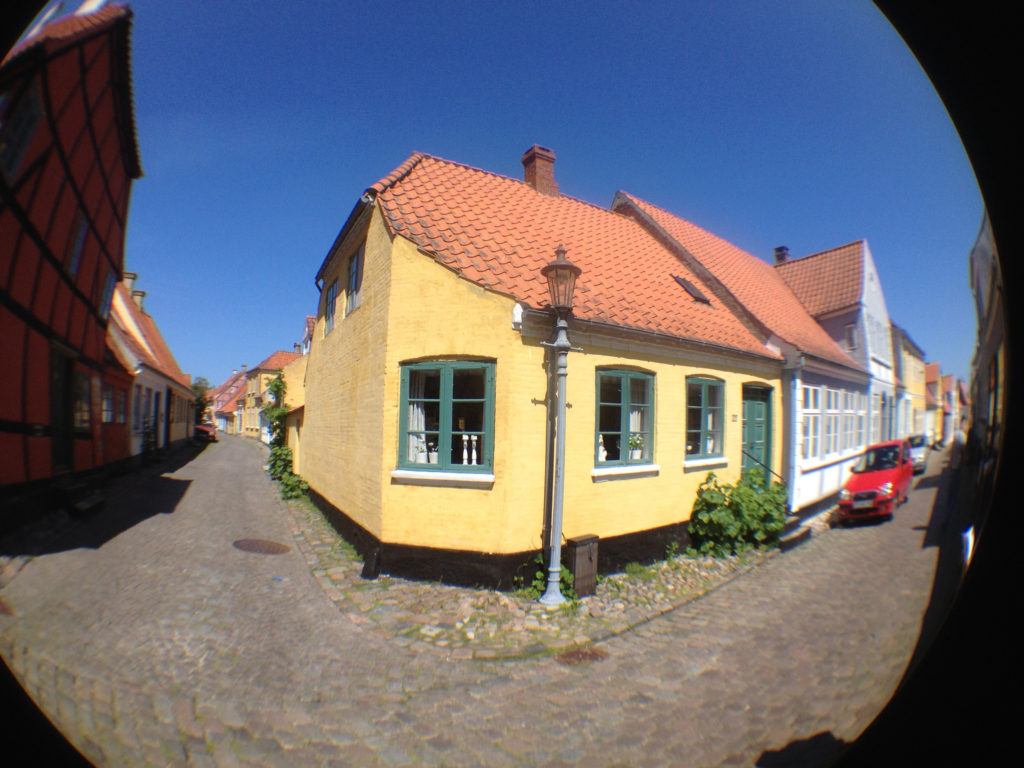A Canadian journalist contacted me recently asking questions about how it works with the negative interest rate that is going on in Denmark at the moment and what effect that had on the housing market. Could it really be true that people would be paid to have a mortgage? The short answer is no – so far the fees added on top of the mortgage means that no one has actually gotten money from the bank for lending money to their house. 
In order to give a proper reply to the Canadian journalist I asked Rasmus O. Firla-Holme the blogger at Pengepugeren if he could help explain what is going on. His answer is below.
Danish mortgage are based on bonds
As far and I understand the North American mortgage system you basically take out a bank loan with security on the home.
The Danish mortgage system is different in that most mortgages are not money borrowed directly from a bank, but rather from investors. There do exist simple bank loan mortgages (I have one of these), but far more are “realkredit” (directly translates to “real credit”). This mortgage system is praised internationally for being transparent, flexible and a low-risk investment.
A Realkredit mortgage is based on bonds. When you apply for a mortgage your broker issues bonds on your behalf and the money you get for the sale will pay for your house. As with most other bonds, the interest rate depends on the time scale and whether the rate is fixed, capped or floating. A 30 year floating interest rate will be lower than a fixed rate as investors have the opportunity to get a higher profit when interests go up in the future.
So why would anyone Invest in bonds with low or even negative interest rates? The answer is security and price.
Security
As mentioned, the Danish Realkredit is praised for being a safe Investment. During crises (e.g. when Greece government bonds turned too risky and the future of the Euro seems uncertain) investors can find a safe harbour in Danish Realkredit bonds. Interests may be low, but you can keep the money there until things cool down.
Price
Part of the low interest is offset by a low bond Price. When an investor buys a very low interest bond they also buy it with a 2, 3, 4 or even higher “discount”. The mortgage may be 2.1M DKK but the investor buys it for 2M. For you as a home buyer that means you sign up for a loan balance that initially is higher than the price of the house, but you get a low interest rate and thus a low monthly expense.
In short, as an investor you get a chance to buy a bond that provides a low or (on rare occasions) slightly negative interest rate, but you also get a low-risk Investment at a discounted price.
The negative interest rate
A negative (or very low) interest rate is in my opinion a sign that something is very wrong. Why would you ever make an Investment that is almost certain to lose money? The negative interest rates are a consequence of the central bank lowering their interest rate to below zero (currently -0.65 %). This makes it a better investment for banks to purchase slightly negative short-term interest bonds instead of depositing reserves in the central bank.
Also, negative interest rate Realkredit bonds are not by any means a common thing, it even caused issues with the brokers’ IT systems. This occurred to a small group of home owners who happened to renew their short term mortgages during a certain timespan. Although it’s a good story, it’s not like Danish home owners generally get paid for their mortgages. It’s mainly a good headline for the real story: That the Danish Realkredit mortgage is a pretty good, stable system with lower interest rates than in many other countries.
For good measure: Home owners don’t directly get paid for negative interest rates. The Realkredit brokers charge a monthly administration fee which vary from about 0.3% to about 2% depending on type of bond and home equity. As the few negative interest bonds are/were about -0.03% home owners still had a monthly payment to make.
Thanks to Rasmus from Pengepugeren for a very elaborate reply and explanation of the background and current situation. If you can read Danish or feel like running his site through Google Translate check out his blog. Some of his interesting posts I would recommend are:

You are amazing! I love your articles. They are so informative! Please keep going!
What happens if a British woman gets divorced in Denmark?
What social security is she entitled to?
Hi Mari – Not sure we can be of much help. It’s not an area I know much about.
Getting divorced in itself doesn’t change the social service you are entitled to? I guess if you have been a stay-at-home wife and you are suddenly without an income you might be entitled to some benefits, but I am not sure what.
I found an article that might be relevant for you:
http://www.business.dk/brevkassen/har-husmor-ret-til-aegtefaellebidrag
Otherwise my advice is to contact a lawyer.
Hi Michael,
Thank you for this amazing article. we are planning to buy a house and get a mortgage but it seems that the bank does not really want to talk about negative interest options instead they are adamant in getting a fixed rate loan. In the mortgage website also can you provide ua links or what is it in Danish that option for negative interest mortgage can be found? What are the steps to be able to get this type of loan…again the bank seems to be heaistant hesitant in giving this option. I would love to hear your thoughts about this…Thanks in advance.
Best regards,
Wil